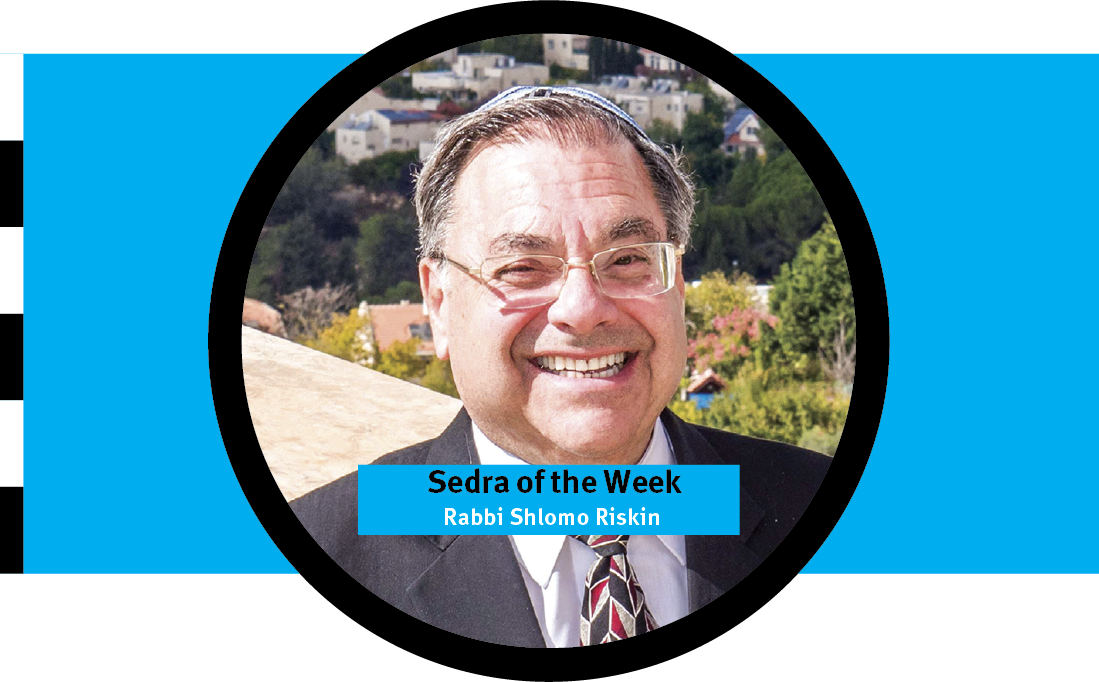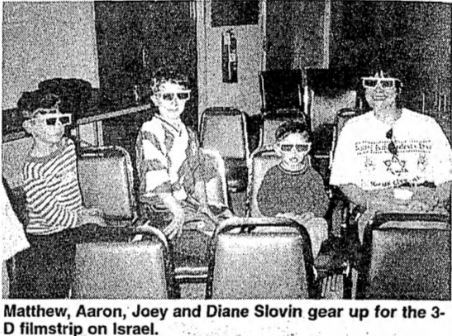Efrat, Israel – And you shall command the children of Israel… And you shall bring forth your brother Aaron and his sons together with him… And you shall speak to all of the wise-hearted. (Exodus 27:20–28:3)
Often what you really have is that which you give away, what you most profoundly say is what you leave unsaid when you wisely decide not to respond, and the most commanding presence is felt most keenly when that presence is not around. An example of the third phenomenon is to be found in the Torah reading of Tetzaveh, the only portion since the opening of the book of Exodus wherein Moses’ name does not appear even once! Why not?
The midrashic answer suggests that Moses initiated his own absence. When the Israelites sinned by worshiping the golden calf less than six weeks after the divine revelation at Sinai, G_d’s anger reaches the breaking point (as it were) and He makes Moses the following offer:
And now leave Me alone as my anger shall burn and I will destroy them, and I shall make of you a great nation (Exodus 32:10).
G_d suggests that He wipe Israel, no longer worthy of His benevolence, from the pages of history by starting a new nation, a new branch, from the loins of Moses himself.
Others in his shoes might have taken up G_d’s offer, but Moses refuses to increase his own glory at the expense of the nation. The climax of his brilliant argument is an emotional ultimatum: G_d must forgive the people.
…If not [says Moses], blot me, I pray you, out of Your Book which You have written (Exodus 32:32).
G_d responds to Moses’ pleas. But Moses’ expression of identification with the people, Moses’ selfless willingness for himself to be obliterated as long as his nation prevails, is eternalized by the fact that in one portion of the Torah, Tetzaveh, the master prophet’s name is “missing in action.”
But on an even deeper level, is there a further significance to the fact that the “ blotting out” of Moses’ name occurs specifically in Tetzaveh?
Even a quick glance reveals that our portion is almost entirely devoted to the priesthood. Chapters 28 and 29 deal extensively with all the garments that the priests are commanded to wear, particularly the
High Priest, as well as the sacrifices that shall be brought to “sanctify the priests.” In fact, Tetzaveh is often called parashat ha-kohanim, the portion of the priests.
Without a temple, the priest’s public role is severely limited. One area, though, where his presence is still felt (particularly here in Israel and among Sephardim even in the Diaspora) is the daily priestly blessing during the repetition of the morning Amida: at the conclusion of the blessing for peace, the priests, attended to by Levites, stand before the congregation and invoke the biblical blessing: “May G_d bless you and keep you…” (Num. 6:24). Before intoning these words, they recite the following blessing:
Blessed are You Lord, our G_d, king of the universe, who has sanctified us with the holiness of Aaron, and has commanded us to bless His people with love.
And when the Priests (Cohanim) give their blessing, the Synagogue turns into a Sanctuary!
The final words in the blessing — “with love” — raise certain questions, since kohanim, or descendants of the High Priest Aaron, are fairly typical people. Some are as sweet as cherry ices in July, and some are as cold as Alaskan ice cubes, but most change in accordance with their mood upon awakening — how can we measure the love-quotient felt by Mr. Cohen when he ascends the bimah for the blessing? How can we legislate the emotion of love which the priests are apparently expected to feel?
The first answer lies in the very nature of the priesthood, in how the Bible legislated the priestly class’s means of livelihood. It’s often said that if you ask a typical entrepreneur, “How’s business?” if he says, “Great,” it means that he is doing well and his competitor is facing bankruptcy; if he says, “Good,” that means it’s a good market for everyone, he’s doing well and so is his competitor; and if he says, “Terrible,” then that means he’s facing bankruptcy but his competition is earning a lot of money. Gore Vidal was once quoted by Hilma Wolitzer in the New York Times for his poignantly honest observation: “Whenever a friend succeeds a little, something in me dies.”
Enter the kohen. If there is one person who disagrees with Mr. Vidal, it would have to be a member of the priestly class who served in the Temple, received no portion of land to till or business to develop, and who made his living by tithes given him by the Israelites: 1⁄40, 1⁄50, 1⁄60 of their produce depending upon the generosity of the individual donor. And since the tithe was a percentage of the crop, the better the farmer makes out, the happier the kohen ends up. To modify the Vidal quote, a kohen would declare: “Whenever a farmer succeeds a little [and certainly a lot], something in me lives.” Hence by the very nature of the economic structure set up by the Bible, the kohen-priest could truly give the blessing of prosperity and well-being to the congregation of Israel “with love.” And since the one leader of Israel, Moses, had so much love for Israel that he was willing to be blotted out of Torah if his beloved people were destroyed, it is the portion of Tetzaveh, the portion of the Priest-Kohanim, whose love for Israel remind us of Moses, although Moses is absent. Even if Moses is absent, his deep love is felt! Indeed, the essence of Moses’ greatness, His sacrificial love of his people, emerges most clearly from the portion of his absence and anonymity.
Shabbat Shalom
Rabbi Shlomo Riskin
Founder & Rosh Yeshiva,
Ohr Torah Stone
Founding Rabbi of Efrat





